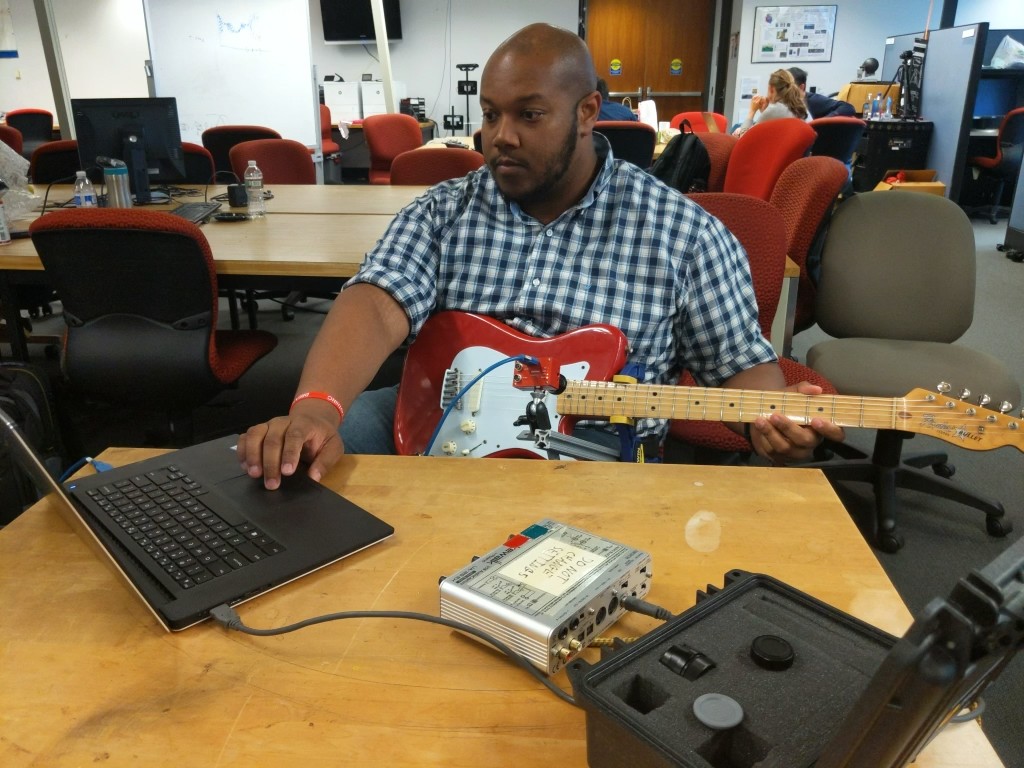
SSE Degree Concentrations
Concentrations are focused areas of study that provide students with a critical level of expertise in a particular domain within SSE, preparing the student for employment or graduate school in that domain. To satisfy the requirements for a concentration, students must complete at least four courses from the selected concentration as detailed below.
*Students may only pursue one Concentration. Please note: Students who are submatriculating MUST meet all of the concentration requirements BEFORE obtaining their undergraduate degree.
Robotics
A major barrier to the development of agile robots that can operate effectively in unstructured environments is the coordination of their many degrees of freedom in response to the noisy data streams from their sensors. Compounding this problem is the need to ground users’ abstract representations of desired behavior in terms of those real time signal loops. Designing and programming dexterous mechanisms that can accept high level symbolic task assignments and produce the complicated sensorimotor activities to realize them is a central problem of robotics. To build and use these systems, engineers must understand the functional capabilities and limits of mechatronic and computational hardware, the many different software tools available to guide their design and deployment, as well as the highly nonlinear models that describe them and the advanced mathematical methods required to control them. This concentration prepares students both to participate in the design of these machines and to use robots as intelligent physical agents to achieve complex tasks in a broad variety of environments.
Must Complete the following course:
ESE 4210 Control For Autonomous Robots
Select 3 from the following courses:
ESE 5000 Linear Systems Theory
ESE 5050 Feedback Control Design and Analysis
MEAM 5200 Introduction to Robotics
MEAM 6200 Advanced Robotics
ESE 6500 Learning in Robotics
Data Science and Artificial Intelligence
Data Science is an interdisciplinary field aiming to extract knowledge and insights from complex datasets using tools from probabilistic modeling, statistical inference, machine learning, and engineering. The Data Science concentration will equip students with the foundational knowledge and technical expertise to understand the tools needed to transform unstructured sources of information into actionable decisions in engineering domains. The students will dive into the fundamentals of probability and statistics, as well as learn, implement, and experiment with data analysis techniques and machine learning algorithms. Students in this concentration will develop the ability to responsibly collect and manage data, think critically, and use data to make data-driven decisions.
Must Complete the following courses:
ESE 3060 Deep Learning: A Hands-on Introduction
ESE 4020 Statistics for Data Science
Select 2 from the following courses:
ESE 4040 Engineering Markets
ESE 5140 Graph Neural Networks
ESE 5450 Data Mining: Learning from Massive Datasets
ESE 5460 Principles of Deep Learning
ESE 6500 Learning in Robotics
CIS 5200 Machine Learning
CIS 5450 Big Data Analytics
NETS 3120 Theory of Networks
ECON 4130 Market Design
Decision Science
Decision Science is an interdisciplinary field that uses analytical methods to support better decisions. It employs techniques from probability, statistics and mathematical optimization. The concentration will equip students with the foundational knowledge and technical expertise need to deal with complex decision-making problems in organizations ranging from petrochemicals to airlines, finance, e-commerce, logistics, and government. The Decision Science concentration will equip students with the foundational knowledge and technical expertise that enables data-driven insights to help organizations make better decisions.
Must Complete the following course:
ESE 3040 Introduction to Optimization or ESE 5060 Introduction to Optimization Theory
Select 3 from the following courses:
ESE 4040 Engineering Markets
ESE 5450 Data Mining: Learning from Massive Datasets
ESE 6050 Modern Convex Optimization
NETS 3120 Theory of Networks
OIDD 2240 Analytics for Service Operations
OIDD 3530 Mathematical Modeling and its Application in Finance
CIS 5150 Fundamentals of Linear Algebra and Optimization
ESE 5500 Advance Transportation Seminar
MKTG 4760 Applied Probability Models in Marketing
Including only 1 of the following options:
- MATH 4320 Game Theory
- NETS 4120 Algorithmic Game Theory
- ECON 4100 Game Theory
- ECON 6110 Game Theory and Applications
